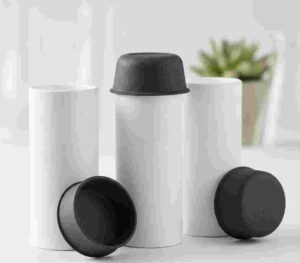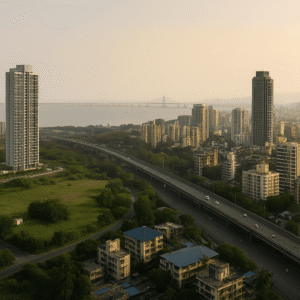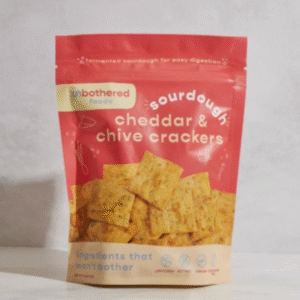molded fiber pulp cap market is experiencing significant growth as brands increasingly adopt sustainable closures driven by environmental awareness, regulatory pressures, and consumer demand. The molded fiber pulp cap market provides biodegradable, durable, and visually appealing alternatives to conventional plastic caps, making it a preferred choice across beverages, dairy, cosmetics, personal care, pharmaceuticals, and household goods. Understanding the drivers and trends of the molded fiber pulp cap market is essential for stakeholders seeking to capitalize on global sustainable packaging opportunities.
Key Market Drivers
The primary driver of the molded fiber pulp cap market is sustainability. The growing need to reduce plastic waste and carbon footprint has prompted brands to adopt eco-friendly closures. Renewable fibers such as bamboo, bagasse, and hardwood ensure that the molded fiber pulp cap market aligns with environmental goals while maintaining functional reliability.
Functionality is another critical driver. Reinforced structures, moisture-resistant coatings, and precision fitment allow the molded fiber pulp cap market to provide closures that withstand handling, storage, and transportation, which is essential for perishable or high-value products.
Consumer demand for eco-conscious packaging is fueling adoption. The molded fiber pulp cap market meets expectations for biodegradable, compostable, and recyclable closures, enhancing brand credibility and loyalty.
Emerging Trends
The molded fiber pulp cap market is influenced by several trends, including advanced material innovation and ergonomic design. Blending renewable fibers with functional additives enhances strength, flexibility, and barrier properties. This trend in the molded fiber pulp cap market ensures closures are durable and suitable for diverse industry applications.
Automation and AI-driven quality control are shaping production efficiency. The molded fiber pulp cap market utilizes robotic forming, automated sorting, and AI-assisted inspection to reduce defects, optimize throughput, and maintain consistent quality. These trends support high-volume production while minimizing environmental impact.
Sustainability-focused branding is also a trend. Cosmetic, beverage, and personal care brands are highlighting eco-friendly molded fiber pulp caps on packaging to attract environmentally conscious consumers. The molded fiber pulp cap market supports this trend by offering customizable, visually appealing, and functional closures.
Impacting Factors
Regulatory compliance is a significant factor affecting the molded fiber pulp cap market. Governments worldwide are imposing restrictions on single-use plastics and encouraging biodegradable alternatives. The molded fiber pulp cap market benefits from these regulations by providing closures that adhere to environmental standards while meeting functional requirements.
Raw material availability and processing efficiency also impact the molded fiber pulp cap market. Innovative fiber processing techniques ensure consistent quality, structural integrity, and scalability. Material optimization within the molded fiber pulp cap market contributes to both cost-effectiveness and sustainability.
Technological advancements in fiber composites, molding techniques, and barrier coatings influence the molded fiber pulp cap market. Continuous R&D in the molded fiber pulp cap market ensures closures are durable, visually appealing, and environmentally responsible.
Market Intelligence
Market intelligence highlights regional adoption trends. The molded fiber pulp cap market is seeing rapid growth in Asia-Pacific, Latin America, and Europe due to rising awareness and regulatory support for sustainable packaging. Beverage, dairy, and personal care industries are leading the adoption of molded fiber pulp caps.
Competitive intelligence shows that manufacturers are investing in automation, design innovation, and advanced materials. The molded fiber pulp cap market leverages these investments to differentiate products, improve functional performance, and maintain eco-friendly attributes.
Consumer insights reveal that eco-conscious choices significantly influence purchasing decisions. The molded fiber pulp cap market provides an opportunity for brands to align packaging with consumer expectations for sustainability without sacrificing usability or aesthetics.
Forecast and Future Outlook
The molded fiber pulp cap market is forecasted to grow steadily over the next decade, driven by regulatory pressures, consumer awareness, and technological innovation. Adoption across multiple industries, including beverages, dairy, cosmetics, and pharmaceuticals, will fuel growth.
Emerging innovations, such as smart closures, tamper-evident features, antimicrobial coatings, and advanced ergonomic designs, will expand the molded fiber pulp cap market’s potential. Integration of lightweight fiber composites and barrier-enhancing technologies will further reinforce its relevance.
Dynamics and Potential
Market dynamics in the molded fiber pulp cap market are influenced by a combination of sustainability, functional performance, and consumer trends. The molded fiber pulp cap market demonstrates significant potential across industries seeking to replace conventional plastic closures with eco-conscious alternatives.
Continuous innovation in design, materials, and manufacturing allows the molded fiber pulp cap market to meet evolving market demands, regulatory requirements, and consumer expectations. Growth potential remains strong due to rising global awareness and increasing adoption of biodegradable packaging.
Developments and Innovations
Recent developments in the molded fiber pulp cap market include improved fiber blends, advanced molding techniques, and high-precision automated production lines. These advancements enhance closure reliability, usability, and sustainability.
Future innovations in the molded fiber pulp cap market may include adaptive molding technology, customizable aesthetics, NFC-enabled smart closures, and integrated barrier solutions. These developments position the molded fiber pulp cap market as a leading solution for sustainable, high-performance packaging across multiple sectors.
Conclusion
The molded fiber pulp cap market is driven by sustainability, technological innovation, and consumer demand for eco-friendly packaging. By understanding market drivers, emerging trends, impacting factors, and potential innovations, stakeholders can leverage the molded fiber pulp cap market to provide reliable, functional, and visually appealing closures. Its continued evolution ensures the molded fiber pulp cap market remains a vital component of sustainable packaging strategies worldwide.
Description:
Explore the molded fiber pulp cap market with detailed analysis of drivers, trends, impacting factors, market intelligence, forecast, dynamics, and innovations shaping sustainable packaging solutions globally.


